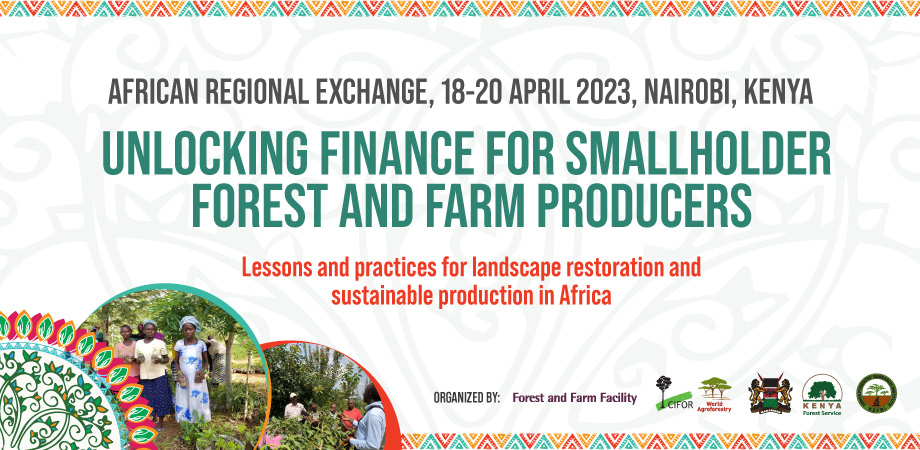Africa has an estimated 33 million smallholder farms, and the farmers that live on them contribute up to 70 per cent of the food supply, and the actual implementation of most regional and international level climate agreements that their respective countries have signed. Smallholders are central to achieving the goals of the UN Decade on Ecosystem Restoration and the Decade on Family Farming. Their members, including smallholders, rural women’s groups, local communities and indigenous peoples’ institutions, are the primary agents of change with transformative potential to achieve sustainable production and development and respond to climate change.
Smallholder producers are confronted by many challenges, key among them a lack of sufficient access to finance. Finance provided to smallholder producers in low-income countries, particularly in Africa, are rarely offered finance suited to their unique activities for improving and scaling up sustainable forest and farm management practices. These groups are often constrained by unfavourable scale, terms and conditions associated with the few finance opportunities available to them with many risk factors, regardless of their capacity. Hence, they fail to tap into substantial returns that can be found through better-suited financial products for forest and farm producers. These problems are exacerbated by an unfavourable policy environment and weak governance systems in many contexts, especially in Africa, which often creates disincentives for sustainable natural resource management practices.
Objectives
The Regional Exchange for Africa will provide an opportunity for the exchange of valuable lessons and sharing perspectives on related projects on finance to help develop a shared understanding of challenges in getting finance to smallholder producers for their innovative and value chain activities and actions for climate and nature-based solutions.
Specifically, the Regional Exchange will:
- Stocktake lessons learned from successful and scalable experiences and best practices on finance;
- Share insights on the best ways to mobilize finance; and
- Discuss and identify appropriate financing instruments for scaling up, including carbon and biodiversity finance and internal finance mechanisms developed by smallholder producer organizations.
The Regional Exchange also includes a field trip to smallholder cooperatives in Kiambu and Muranga counties of Kenya to facilitate learning of examples of FFPOs’ innovative activities, value chains development and climate and nature actions worth financing, as well as FFPO’s internal finance mechanisms.
The meeting will take place in-person, however virtual attendance will be possible by registering here.
The programme for the event is available here and details of the field trip are available here.

